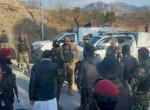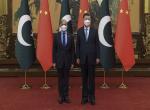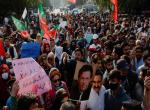It is not clear what External Affairs Minister’s visit to Pakistan in mid-July can realistically achieve in bridging the trust deficit between India and Pakistan. This distrust spans sixty three years. So long as Pakistan persists with its claim on Kashmir, pursues confrontationist policies, rejects substantive steps towards normalization, uses Islam as a rallying force against India and resorts to terrorism to bleed it, the existing trust deficit will endure whatever Pakistani’s diplomatic protestations and India’s hopes.
Repeated initiatives by India over the last one year to engage Pakistan in the expectation that its deteriorating internal situation, its mounting external challenges and its dire economic situation would dispose it to reach a modus vivendi with India in its own self-interest have failed. Despite the terror trauma of Mumbai, Prime Minister Manmohan Singh reached out to President Zardari at Ekaterinaberg and Prime Minister Geelani at Sharm el Sheikh last year. Pakistan failed to reciprocate by acting on the central cause for the present phase of distrust on the Indian side- the issue of terrorism directed at India from Pakistani soil. Undeterred, Prime Minister proposed Foreign Secretary level talks, but Pakistan’s could not overcome its proclivity to score points rather than address issues and the talks failed. Pakistan subsequently insisited on talks only at the political level, as if India was less committed to finding solutions than Pakistan. At Thimphu, Prime Minister met his Pakistani counterpart and invested yet again in his faith in Pakistan’s willingness to change direction by initiating meetings at Foreign Secretary level, and at that of Home Ministers and Foreign Ministers.
India’s exhortations to Pakistan on terrorism are limited and reasonable. It expects Pakistan to show its commitment to seriously address the terrorist threat by expeditiously trying and punishing those responsible for the Mumbai carnage, and act as well against the Panjab based jihadi groups like LeT and JuD long nurtured by the Pakistani state to specifically target India. Pakistan has effectively parried both these demands. It has been obliged, of course, to proceed with the trial of the Mumbai perpetrators as the volume of available evidence is too plentiful to disregard or reject, but it has used technical legal excuses to delay bringing to justice those guilty, besides shielding the real conspirators, including some serving army offficers. Pakistan is obstinate in not putting curbs on Hafiz Saeed, accused by our Home Minister as one of the masterminds of Mumbai, despite his inflammatory jihadi rhetoric against India. Pakistan’s Foreign Minister has almost comically cited freedom of speech in Pakistan as reason for the inability of the government to silence him. Hafiz Saeed is a creature of the combined antipathy to India of political party elements, the military and religious extremists in Pakistan, and hence its reluctance to act against him and our insistence that it must do so.
Pakistan is essentially unwilling to be answerable to India on charges of terrorism. It makes counter-accusations of its own about our interference in Baluchistan and even in FATA. It has been devaluing the enormity of the Mumbai attack by stating that Pakistan itself has suffered several Mumbais, drawing an untenable equivalence between cross-border and internal terrorism. It rejects any culpability for using the instrument of terror against us with the glib and superficial argument that as a victim of terror itself it cannot in all reason do so. This ignores the basic reality that Pakistan has bled us with terrorism for years before it became a victim of the forces it had nourished and unleashed against us. It is not surprising that these forces, mobilized to fight for the Islamic cause in Kashmir, turned against their masters for fighting(albeit selectively) against the Islamic cause in Afghanistan in collaboration with the US.
Pakistan projects its anti-terrorist credentials by citing its action against the Pakistani Taliban, an argument made to win western opinion to its side, but which mocks at India’s concerns about the veritable source of terrorism against it- the Panjab based jihadi groups. Pakistan’s Interior Minister now claims, in a testimony to his insincerity, that his country’s action against the Pakistani Taliban is a service it has rendered also to India, as it protects us from the destructive character of these forces! All these contortions and distortions of Pakistan on the issue of terrorism can hardly breed trust in India. Even the US political class has accused Pakistan of duplicity in combating or protecting terrorist groups depending on whether they were an internal menace or an external asset.
Pakistan’s Afghan policy enhances the trust deficit with India. Pakistan is intolerant of India’s presence in Afghanistan. It has connived at the attacks against our mission and personnel in Kabul. It has unleashed propaganda that our consulates in Kandahar and Jalalabad are backing insurgents in Baluchistan. Its active backing of reconciliation between President Karzai and the extremist Afghan Taliban formations so that the latter can share power in Kabul and serve Pakistan’s goal for acquiring strategic depth in Afghanistan reveals the anti-Indian rationale of Pakistan’s regional vision.
Water has been added to the already exisiting quotient of India-Pakistan distrust. President Zardari placed it even before Kashmir in his Parliamentary address earlier this year. He declared Pakistan’s intention to internationalize the problem and it was raised with the US during their March strategic dialogue. Exciting domestic passions by accusing India of stealing water and of violating the Indus Waters Treaty makes the resolution of bilateral differences and trust-building even more difficult.
With such realities in the face when Shri Krishna visits Islamabad, the trust deficit will not be reduced by simply relying on circulating more currency of hope and wishful thinking.
The writer was India’s Foreign Secretary








Post new comment